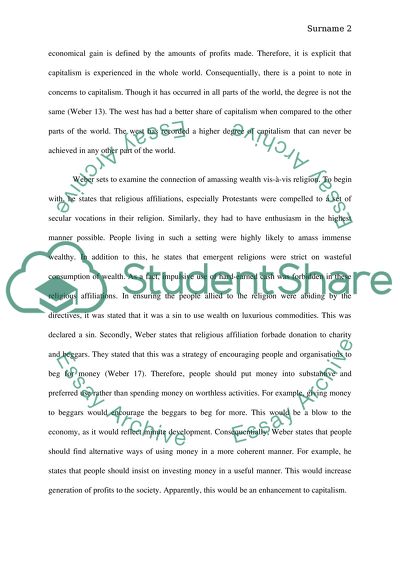What does Max Weber tell in The Protestant Ethic and the Spirit of Essay. Retrieved from https://studentshare.org/sociology/1494154-what-does-max-weber-tell-in-the-protestant-ethic
What Does Max Weber Tell in The Protestant Ethic and the Spirit of Essay. https://studentshare.org/sociology/1494154-what-does-max-weber-tell-in-the-protestant-ethic.


